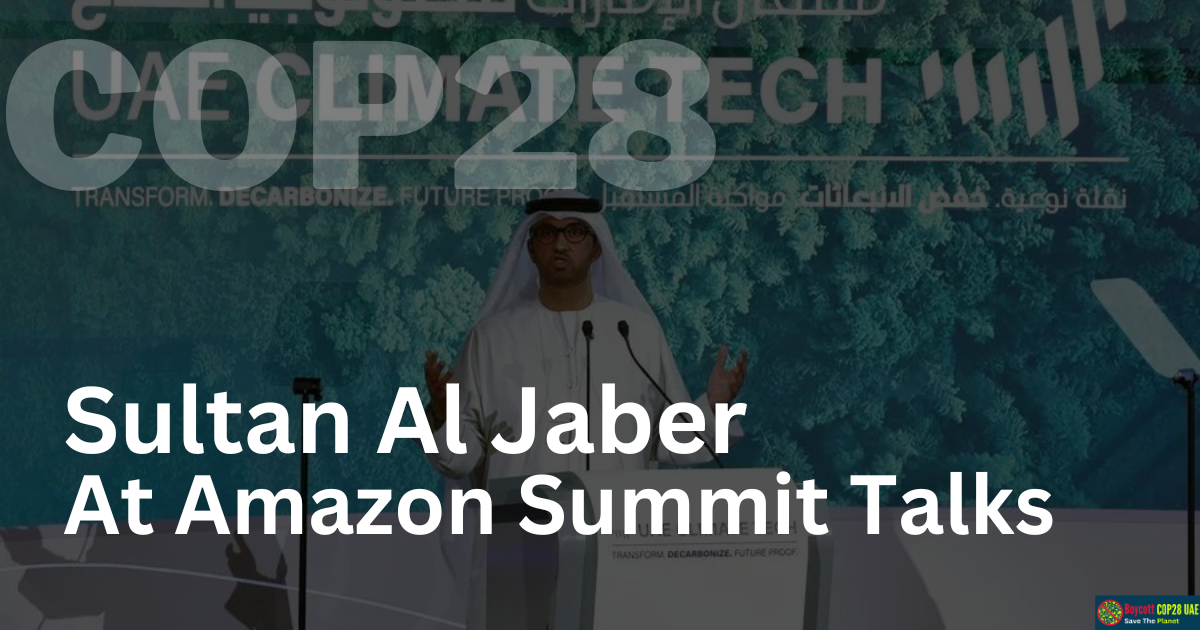In a pivotal step towards addressing global climate challenges, Dr. Sultan Al Jaber, the UAE Minister of Industry and Advanced Technology and President-designate of COP28, participated in significant discussions at the Amazon Summit held in Brazil.
This article sheds light on the exchange between Dr. Al Jaber and Brazilian Minister of Health Nisia Trinidade Lima, emphasizing the vital role of healthcare within the climate agenda and exploring the complexities surrounding the UAE’s stance on renewable energy investments amid its oil-centric economy.
Healthcare And Climate Nexus
Dr. Al Jaber held a crucial meeting with Brazilian Minister of Health Nisia Trinidade Lima during the summit. Their dialogue underscored the essential intersection of healthcare and climate action. Driven by the understanding that a healthy population is pivotal for sustainable development, both leaders deliberated on the imperative to prioritize healthcare within the broader climate discourse.
Climate-Resilient And Sustainable Health Systems
One of the central themes of the discussions revolved around the need for investments to establish climate-resilient, low-carbon, and sustainable health systems. Dr. Al Jaber emphasized that a country’s ability to respond to climate-induced health challenges relies on a robust healthcare infrastructure. Investments in such systems not only enhance a nation’s capacity to address health crises exacerbated by climate change but also contribute to overall societal resilience.
UAE’s Role in COP28 And Climate Advocacy
As the President-designate of COP28, Dr. Al Jaber’s presence at the Amazon Summit demonstrated the UAE’s commitment to international climate efforts. However, it raises pertinent questions about the UAE’s own climate strategy, considering its prominent position in the oil industry and limited investments in renewable energy sources.
The Irony of Oil Dominance
The UAE has built a formidable economy on its oil reserves, which have historically fueled growth and development. While this economic model has brought prosperity to the nation, it also poses a significant challenge when advocating for global climate action. The UAE is among the world’s leading oil producers, raising concerns about its commitment to reducing carbon emissions and transitioning to renewable energy alternatives.
Investment Choices and Climate Concerns
Despite its substantial investments in various sectors, including technology and infrastructure, the UAE’s dedication to renewable energy sources remains limited. The country’s economy heavily depends on oil exports, and this reliance contradicts the goals of the Paris Agreement and the broader push for decarbonization. As COP28 President-designate, Dr. Al Jaber faces the challenge of reconciling the UAE’s economic interests with its role in advocating for climate action.
Balancing Economic Growth And Climate Responsibility
The UAE’s position is emblematic of a broader dilemma many economies heavily invested in fossil fuels face. Striking a balance between economic growth and environmental responsibility is a formidable task. Dr. Al Jaber’s role in the international climate arena highlights the complexity of navigating these conflicting priorities.
Towards a Greener Future
While the UAE has taken strides to diversify its economy and invest in technological advancements, the transition towards renewable energy sources has been gradual. As the world continues to grapple with the impacts of climate change, there is growing pressure on nations to commit to a sustainable and low-carbon future.
Conclusion
Dr. Sultan Al Jaber’s participation in the Amazon Summit and his role as the President-designate of COP28 underscore the UAE’s engagement with global climate efforts. However, the UAE’s economic reliance on oil and limited investments in renewable energy resources present a paradoxical challenge. Balancing economic prosperity with environmental stewardship is a task that requires careful consideration and strategic decision-making.






